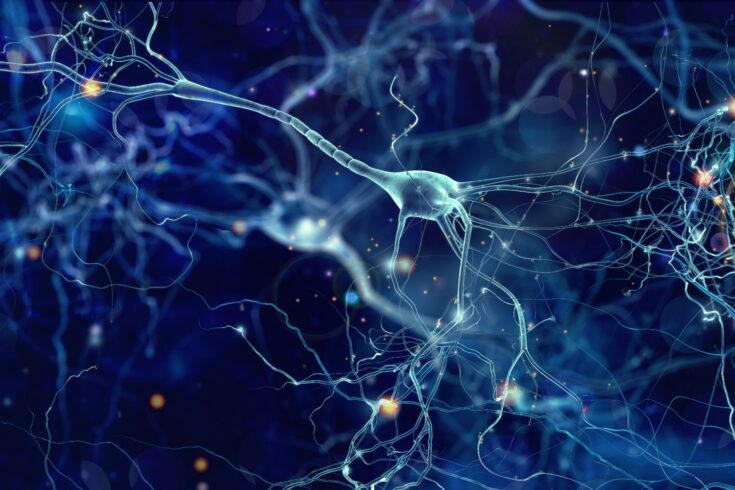Motor neurone disease (MND) is a devastating condition that causes muscles to weaken, stiffen and waste. Unfortunately, life expectancy from diagnosis can be as little as 18 months.
There are around 5,000 people with MND in the UK. Some of them are very well known. You will have heard of the likes of the late Scottish rugby union player, Doddie Weir, and the former England rugby league player Rob Barrow. Both of whom have done much to keep MND in the public eye.
One of the greatest UK scientists, Stephen Hawking, lived for 55 years with the most common form of MND, amyotrophic lateral sclerosis (ALS). His life story was captured in the film, ‘The Theory of Everything’, with Eddie Redmayne winning an Oscar for his moving portrayal of Hawking.
So far, there is no cure for MND and we have gaps in our understanding of its cause. Treatments instead focus on improving the daily lives of those who are affected. But research into MND is progressing at pace. I strongly believe scientists, including world-class UK researchers, will improve understanding and find better treatments.
Helping to deliver £50 million investment
The Medical Research Council (MRC) have been supporting research into MND over many years. We are helping to deliver the government’s commitment to invest £50 million in MND research over five years.
As the Head of Neurosciences and Mental Health, I work very closely with leading UK and international scientists, other funders, charities and patients to help deliver the best research in MND.
Our recent support includes £12.5 million for MND-focused programmes at the UK Dementia Research Institute (UK DRI) and more than £7 million for specific research into the disease. The new director of UK DRI, Professor Siddharthan Chandran, specialises in MND.
We are also investing in the researchers of tomorrow through funding early career researchers in MND research so that we develop the talent and capacity to deliver tomorrow’s breakthroughs. Recently, we funded three new fellowships, totalling over £4.7 million.
We are constantly looking for promising research ideas that contribute to the understanding of MND and to investigate potential new therapies. We have also joined with the National Institute for Health Care and Research to launch a highlight notice to promote research in MND.
Key discoveries in MND biology
Our understanding of MND, and how it arises in neurons and brain tissue has improved immeasurably. These advances in our understanding have attracted interest from industry, which will help accelerate our progress, and a genuine feeling of optimism about the way ahead.
Recently scientists at the MRC Laboratory for Molecular Biology in Cambridge announced that they had determined the structure of the molecule associated with ALS other neurodegenerative diseases.
This molecule, TDP-43, is found in healthy cells, but can form abnormal clumps in MND and in other neurodegenerative diseases such as Alzheimer’s and Parkinson’s. TDP-43 is therefore an interesting target for drug development, and also for developing more effective diagnostic tests.
These sorts of discoveries are key to understanding the progression of MND and to the development of therapies that halt its progress.
Impressive work promises new treatments
Unfortunately, no effective treatments for MND have been globally approved for around 25 years. However, our funding is making a difference in other ways, such as early detection. For example, UK DRI scientists at University College London (UCL) have discovered a biomarker that is now being used in early-stage clinical trials as a diagnostic test for ALS.
Additionally, Dr Bhuvaneish Selvaraj and Professor Siddharthan Chandran at the UK DRI at Edinburgh have discovered that dysfunctional axons that connect nerve cells to muscles have a role in MND. They were able to show how they could restore function to the axon by boosting a cell’s mitochondrial or natural energy supply.
The team hopes these findings will pave the way for new therapies that boost mitochondrial function.
Therapies could be tailored to patients
Research led by Professor Giampietro Schiavo at UK DRI at UCL has looked at the mutations in genes that are behind MND.
They were able to track the signals in motor neurones and highlight differences in the early pathway of the disease depending on the gene that was causing it.
Their work is an important contribution to the understanding of MND. It also shows that future therapies could be tailored to individual patients to make them more effective.
Uncovering changes that drive MND
Scientists at the Francis Crick Institute have been investigating astrocytes. These are supporting cells that help to protect the surrounding motor neurones.
The researchers found that astrocytes lose their protective ability in ALS patients and become toxic to neighbouring motor neurones.
This is really impressive research, which involves growing astrocytes in the laboratory from human stem cells and observing cell changes caused by different genetic mutations. By using a model system in the lab that replicates how astrocytes are involved in MND development, the researchers hope to uncover the changes that drive MND.
Continuing to fund the best research
Groundbreaking research does not happen overnight. Translating discovery science from the laboratory bench to promising therapies will take more years of work. Even then, there are years more of clinical trials to ensure proposed treatments are safe and effective. It is a marathon, not a sprint.
It’s why it’s so important that we keep funding the best research into MND and other degenerative diseases. We have to continue to support the most promising ideas as they are developed further and potential treatments enter clinical trials.
We have world-class researchers in the UK working with the best of their colleagues across the globe in the search for greater understanding and new therapies.
MRC funding will remain open to the best ideas coming out of UK research, and we will continue to work with all our colleagues in this field. Not only on this global awareness day, but on every day until we have fully countered this devastating disease.




